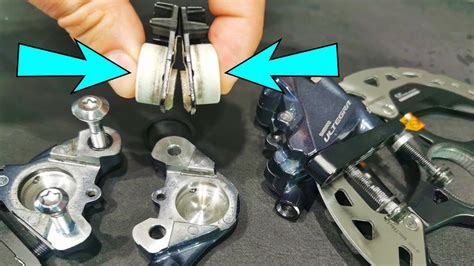Hydraulic Brakes: Are They Right For Your Bike?
Hydraulic disc brakes have revolutionized cycling, offering superior stopping power and modulation compared to their mechanical counterparts. But are they the right choice for your bike? This comprehensive guide explores the advantages and disadvantages of hydraulic brakes to help you make an informed decision.
What are Hydraulic Disc Brakes?
Hydraulic disc brakes use hydraulic fluid to transfer force from the brake lever to the calipers clamping the rotor (disc) mounted on the wheel. This system provides significant advantages over mechanical brakes, which rely on cable tension. The fluid's incompressibility translates directly into powerful, consistent braking, even in wet or muddy conditions.
Advantages of Hydraulic Disc Brakes:
-
Superior Stopping Power: This is the most significant advantage. Hydraulic brakes provide significantly more stopping power than mechanical brakes, especially in challenging conditions like rain or mud. This improved power translates to increased safety and control, particularly at higher speeds or on demanding terrain.
-
Better Modulation: Modulation refers to the rider's ability to finely control braking force. Hydraulic brakes offer superior modulation, allowing for smoother, more controlled stops. This is crucial for precise braking in technical situations.
-
Consistent Performance: Unlike mechanical brakes, which can lose effectiveness due to cable stretching or contamination, hydraulic brakes maintain consistent performance over time, requiring less maintenance.
-
Less Maintenance (Generally): While they do require occasional bleeding (replacing fluid), hydraulic brakes generally require less frequent maintenance than mechanical rim brakes, which need regular adjustments and cable replacements.
-
Increased Durability: The sealed hydraulic system is less susceptible to dirt and debris, leading to increased longevity compared to cable-based systems.
Disadvantages of Hydraulic Disc Brakes:
-
Higher Initial Cost: Hydraulic brakes are significantly more expensive than mechanical brakes, representing a larger upfront investment.
-
More Complex Repairs: Bleeding a hydraulic brake system requires specialized tools and knowledge. Repairs are generally more involved and often require professional assistance, resulting in higher repair costs.
-
Weight: Hydraulic brake systems are typically heavier than comparable mechanical systems, although the weight difference is becoming less significant with advancements in materials.
-
Potential for Damage: While durable, the hydraulic system can be damaged by impacts or punctures, requiring expensive repairs or replacements.
-
Rotor Noise: Some riders find that rotors can squeal under certain conditions. This can be resolved with proper installation and maintenance.
Are Hydraulic Disc Brakes Right for Your Bike?
The suitability of hydraulic disc brakes depends on several factors:
1. Riding Style and Terrain:
If you ride frequently in wet or muddy conditions, or on demanding terrain, the superior stopping power and control of hydraulic brakes are invaluable. Mountain bikers, gravel riders, and commuters in challenging environments will significantly benefit.
2. Budget:
The higher initial cost of hydraulic brakes is a significant consideration. If budget is a primary concern, mechanical brakes might be a more affordable option, especially for casual riders.
3. Maintenance Capabilities:
If you are comfortable with basic bicycle maintenance, you may be able to handle minor repairs. However, more complex issues might necessitate professional service, impacting the cost of ownership.
What Type of Bike Do You Have?
Many modern bikes—especially mountain bikes, gravel bikes, and higher-end road bikes—come standard with hydraulic disc brakes. Retrofitting hydraulic brakes onto older bikes is possible but can be complex and potentially costly. Consider the compatibility with your frame and existing components.
Frequently Asked Questions (FAQ)
How much do hydraulic brakes cost?
The cost of hydraulic brakes varies depending on the brand, quality, and type. Expect to pay significantly more than mechanical brakes, often hundreds of dollars.
How often do hydraulic brakes need servicing?
Typically, hydraulic brakes require bleeding every year or two, or if performance deteriorates. Regular inspection for leaks is also recommended.
Can I install hydraulic brakes myself?
While possible, installing hydraulic brakes is complex and requires specialized tools and knowledge. It is recommended to seek professional assistance if you lack experience.
Are hydraulic brakes heavier than mechanical brakes?
Generally, yes, hydraulic brakes are slightly heavier than comparable mechanical brakes. However, modern designs are minimizing this weight difference.
In conclusion, while hydraulic disc brakes offer superior performance and control, they come at a higher price point and require more specialized maintenance. Weigh the advantages and disadvantages carefully against your riding style, budget, and mechanical aptitude to determine if they are the right choice for your bike.

